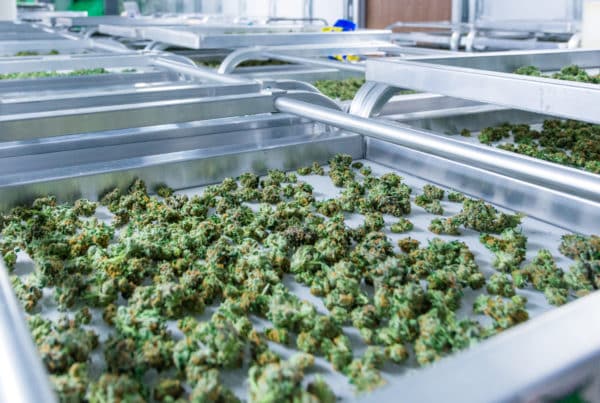
The cannabis industry seems to be one of the fastest growing sectors of the US economy. In 2018 alone, the industry injected more than 64,000 jobs into the market.
33 states and the District of Columbia have legalized marijuana on some level. Why, then, do federal laws and regulations deny cannabis businesses access to baking services?
Banks cannot currently accept cannabis industry customers without facing potential fines and penalties.
This leaves cannabis-related businesses open to robberies, wherein their money is uninsured.
Are state and federal governments moving to aid this marijuana banking problem? The answer may be more complicated than you might expect. Continue reading to find out more.
The Essential Problem
The cannabis industry faces a lot of intense problems from the government and society at large.
The sale, cultivation, and consumption of cannabis medically or otherwise are legal in more than half the US. Still, the industry faces intense rules and regulations which make business more difficult.
With no place to deposit money, cannabis businesses are forced to keep their money in cash. This can be a hindrance to the cannabis industry in terms of growth and taxation.
Large amounts of cash and lack of regulations make marijuana businesses, such as dispensaries, prone to crime. They become easy targets for armed robberies.
Repercussions for Banks
Some people wonder whether or not banks face real repercussions from the federal government. In some areas of the country, banks have been able to open cannabis accounts without legal problems.
This has led some banks to join the movement and take on some of the risks.
However, banks wish to eliminate the risk and take on clients who bring in a lot of revenue.
Larger banks may be subject to more scrutiny related to cannabis industry customers. Unwilling to take on the risk, some banks are losing out on the revenue they could generate from providing loans and accounts.
State vs Federal Law
Individual states could allow banks to work with cannabis industry customers. This might mitigate some of the risks involved. Such maneuvers, though, might be largely symbolic.
Unfortunately, banks are subject to many complex federal laws and institutions. For example, the Federal Deposit Insurance Corporation (FDIC) cannot cover cannabis accounts.
This, in addition to the threat of penalties and fines, creates an aura of risk for those banks which might consider granting accounts to cannabis companies.
An individual bank could theoretically grant accounts to cannabis companies. However, these funds are still illegal according to federal law.
Should a bank agree to manage a cannabis company’s funds, the federal government could consider this money laundering.
The cannabis industry and banks alike are waiting for Congress to bridge the gap between state and federal law.
Pressure on the US Congress
Does this mean Congress should completely legalize marijuana at a federal level?
Such action would be controversial and is subject of much debate. Bills concerning this very issue have been on the table for years. The first may have appeared when Colorado first legalized recreational marijuana.
The most notable bill is called the Secure and Fair Enforcement Banking Act. As the name suggests, it outlines the means by which marijuana businesses can bank effectively.
While the bill represents a positive step for the cannabis industry, lawmakers are unsure.
Some believe the legislation might create more confusion rather than answer lingering questions.
Some believe Congress doesn’t hold the power to enact such legislation. They believe the problem must find resolution in the rescheduling or descheduling of the cannabis plant.
Others believe discussions of the bill come too late.
But Marijuana Banking Benefits Everyone
Many supporters argue marijuana banking would benefit businesses, banks, and the economy.
Some banks are wary of accepting customers who serve cannabis companies in any way.
For example, an energy company might provide services to a dispensary. Banks run the risk of processing so-called illegal funds.
This robs banks of potential customers and creates cash flowing over in unwelcome places. All cannabis-related transactions must be in cash.
Should banks gain access to cannabis-related clients, they would have access to more potential profits. This seems like an intuitive win-win scenario.
This would even make tax collection much easier. Cannabis businesses would have better and more easily accessible records of transactions.
Lawmakers in Congress, though, are resistant to such changes. In fact, the Senate has yet to seriously consider discussions on this topic.
Growing Cannabis Support in Congress
As time goes on, it appears more members of Congress are willing to take up the discussion of cannabis and banking. This could spell good news for both cannabis businesses and banks who serve them.
In February, the House of Representatives initiated a hearing concerning marijuana banking.
Members of the House site examples of robbery, kidnappings, and other violent crimes.
It’s not just the individual cannabis businesses who are in danger of these crimes.
A single employee’s pay may exceed several thousand dollars every two weeks. Cannabis businesses must pay employees in cash.
This means an employee may carry thousands of dollars in cash on a given payday. This makes them an easy and profitable target for a robber.
Congress also has some obligation to benefit the growth of the US economy. When cannabis companies cannot access lines of credit or loans, they cannot grow. Businesses frequently need injections of capital in order to grow.
Congress currently struggles with federal banking laws in conflict with federal marijuana laws. Can they overcome this powerful and demanding struggle? Only the future may tell.
By Popular Demand
Congress may be unable to get around the problem of popular demand. Citizens, businesses, and banks alike would like to see a push for marijuana legalization.
Before that can happen, though, they need to tackle the problem of marijuana banking.
It’s uncertain whether or not Congress can build a bridge between federal and state laws. Keep your eyes and ears open.
Are you looking for more cannabis news? Check out our section for cannabis news.
Recent News
What Is The Effect Of Coronavirus On The Current State Of The Cannabis Industry







